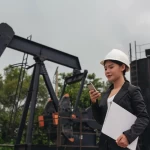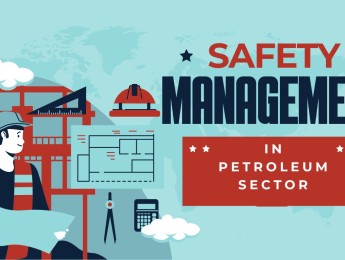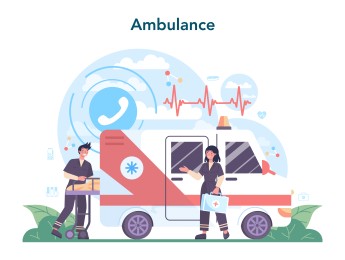Understanding and maximising the successes of your refinery process is essential to your petroleum business. Oil-focused companies' expectations regarding environmental considerations are becoming tighter and more highly regulated.
This means that the costs to produce refined oil are becoming higher, while consumers expect prices to be lower. This requires optimising refinery process yields to make the most money from the oil yield while providing a refined and high-quality product to maintain customer and sales.
Discussing your feedstock, operating conditions, systems, and technology to maximise your profits and still meet global demand is important to fully optimise your operation.
The changes in refinery regulations and the developments in environmental conservation require oil companies to delve deeper into their operations to gain a fundamental understanding of the software and machinery changes required of them to successfully produce and sell crude oil products in the new market and make the best use of the bottom of the barrel prices with high expectations.
Upon completion of this course, participants will be able to:
- Understand the complexities of oil refinement.
- Drive the oil refining process with profit in mind.
- Develop an understanding of the best systems and technology to move forward in the petroleum industry.
- Apply the changes in refinement processing to optimise your operation.
- Understand the environmental effects of oil production and work to reduce them.
- Appreciate the consumer's needs and reduce production costs to meet their price expectations.
- Develop a forward-thinking framework to increase profits through development.
- Create system automation to monitor production and waste.
- Communicate to the wider organisation the benefits of being conscious of waste in production and oil refinery.
This course is designed for anyone involved in optimising the refinery process in oil production or aiming to create continuous improvement plans for the operation. It would be most beneficial for:
- Engineers
- Business Owners
- Operations Managers
- Blending Employees
- Scheduling Employees
- IT Professionals
- Technicians
- Sales Personnel
- Account Managers
- Crude Oil Buyers
- Supervisors
This course uses various adult learning techniques to aid full understanding and comprehension. Participants will review the full refining process to understand the intricacies and importance of oil refinement in today’s market. They will run through a cost-benefit analysis of their operational processes and understand where cost savings could be made.
Each participant will be provided with innovative ideas, tools, and techniques that could aid the petroleum production operation and understand the reasoning behind the prices that need to be reduced in the market to stay competitive. An open discussion will raise environmental considerations and waste disposal topics and discuss how these things will affect their wider business processes. Participants will leave the course with ideas and a greater understanding of increasing yield and tightening processes to stay ahead in today’s competitive petroleum market.
Day 5 of each course is reserved for a Q&A session, which may occur off-site. For 10-day courses, this also applies to day 10
Section 1: Crude Oil Refinery Technology
- Understanding the origins of oil and its characteristics.
- The properties of crude oil and how these affect your refining process.
- Crude oil products against market trends.
- Understanding Gasoline, Kerosene, and Fuel oil differences.
- Petrochemical feedstocks and what they mean to you.
- Refineries and their complexity.
- Training new employees on refinery processes.
- Developing interrelationship processes.
Section 2: Refining Processes & Assessments
- Developing your crude oil processes.
- Desalting feedback and design.
- Atmospheric distillation and vacuum distillation.
- Oil Processing systems and thermal processing.
- Delayed coking, fluid coking, and flexicoking.
- Visbreaking and insights.
Section 3: Motor Fuel Production Process Amendments
- Fluid catalytic cracking and change.
- Hydrocracking and cat-cracking procedures.
- Isomerisation, alkylation, hydrotreating.
- Catalytic reforming.
Section 4: Operations Changes & Support
- Product specification blending and reforming.
- Optimising your operation.
- The intricacies of producing hydrogen.
- GTL highlights.
- Gas plant refineries.
- How to treat acid gas.
- Developing your Sulphur recovery plan
Section 5: Economics Refining & Profits Tracking
- Real-world case studies on refinery development.
- What works and what doesn’t?
- Planning based on your budget.
- Increased cost analysis.
- Your economic evaluation to develop your pricing strategy.
- Cost estimation projects.
- Asphalt residue and removal.
- Residue reduction and waste removal.
- Evaluation of your forecasting.
- Continuous improvement into the future.
Upon successful completion of this training course, delegates will be awarded a Holistique Training Certificate of Completion. For those who attend and complete the online training course, a Holistique Training e-Certificate will be provided.
Holistique Training Certificates are accredited by the British Assessment Council (BAC) and The CPD Certification Service (CPD), and are certified under ISO 9001, ISO 21001, and ISO 29993 standards.
CPD credits for this course are granted by our Certificates and will be reflected on the Holistique Training Certificate of Completion. In accordance with the standards of The CPD Certification Service, one CPD credit is awarded per hour of course attendance. A maximum of 50 CPD credits can be claimed for any single course we currently offer.
- Course Code IND01-127
- Course Format Classroom, Online,
- Duration 5 days














